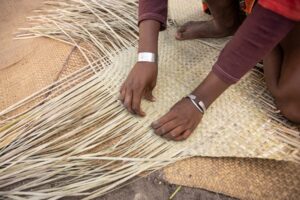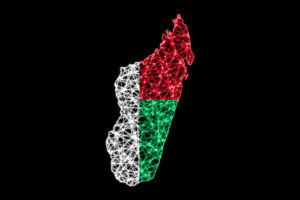Plastic Recycling : Potential for Artisanal Development in Madagascar
Current waste management poses a major problem for the sustainable development project in Madagascar, particularly as regards the management of plastic waste. Around 10% of the island’s waste is plastic. However, these challenges can be turned into opportunities through recycling.
Recycling, which is not yet widespread on the island, offers significant potential for the development of the country’s craft industry. Most of this plastic waste ends up directly in nature or in the oceans, with direct, rapid and harmful consequences for Madagascar’s exceptional but fragile biodiversity , consequences that we must avoid at all costs. This article explores how plastic recycling can benefit Madagascar’s artisanal economy and help to preserve its environment.
Environmental Context and Challenges :
Madagascar is facing inadequate management of plastic waste, which is threatening its fragile ecosystems and precious natural resources. Plastic pollution affects not only terrestrial and marine biodiversity, but also the public health of local communities. Furthermore, in large cities, a lot of plastic waste clogs up already saturated drainage channels, leading to sewage flooding in homes, schools and busy areas, which can sometimes encourage the spread of infectious diseases.
Plastic is a widely used material because of its versatility and low cost, which explains its great popularity in all industrial sectors, including the agri-food industry in Madagascar. However, it is very difficult to degrade; when not properly treated after use, often for a single use, it can cause irreversible pollution in the environments where it is dumped.
Plastic pollution can manifest itself in different ways: the most visible is the accumulation of waste that moves with the wind and waterways, polluting the latter. A form of pollution that is less obvious to the naked eye is that of microplastics, fragments of decomposing plastic. Finally, plastic microbeads, used mainly in cosmetics, are a new and less detectable source of pollution, but just as worrying for the environment.
The Potential of Plastics Recycling :
Recycling is the most practical solution in Madagascar and can offer a number of potential advantages for promoting circular economic development :
Creation of Craft Jobs :
The plastic recycling process can be adapted to create employment opportunities in the craft sector. Local artisans can use recycled plastic as a raw material to make a variety of products such as bags, jewellery, furniture and artwork. This not only boosts the local economy but also strengthens traditional craft skills. With a little thought and imagination, we’re convinced that anything is possible.
Reducing dependence on imported materials :
By using recycled plastic as a raw material, Madagascar can reduce its dependence on imported materials and contribute to the country’s economic security. It also promotes the self-sufficiency and economic resilience of local communities. Many industrial companies are currently in the process of promoting projects based on recycled plastic; we must support these initiatives.
Positive environmental impact :
Plastic recycling reduces the amount of plastic waste that ends up in landfill sites and natural ecosystems, which contribute to the conservation of Madagascar’s biodiversity. It also helps prevent marine pollution, a growing problem along the island’s coasts. Collection stations could be set up in the areas most affected.
Initiatives and Examples :
Several local initiatives and non-governmental organisations (NGOs) in Madagascar are already promoting plastic recycling as a way of supporting artisanal development. For example, artisan cooperatives have been set up to train and support artisans in the use of recycled plastic. Initiatives such as these demonstrate the transformative potential of plastic recycling for local communities.
Challenges and solutions :
While there are many benefits to recycling plastics, there are challenges such as the need for efficient collection infrastructure, appropriate recycling technologies and increased awareness of the importance of waste separation. These challenges can be overcome by government, NGOs, the private sector and civil society working together to develop sustainable and inclusive solutions. But most important of all is awareness and education. Access to education is the cornerstone of any sustainable project. Without proper education, many people do not know what they are getting involved in or what causes they are fighting for.
To conclude :
In conclusion, plastic recycling represents a promising opportunity for Madagascar’s artisanal development, while helping to preserve its natural environment. By investing in efficient recycling systems and supporting local initiatives, Madagascar can not only reduce its environmental footprint but also strengthen the local economy and improve the quality of life of communities across the country. The potential is there, and harnessing this opportunity is crucial to a sustainable and prosperous future for Madagascar.




